Scientific “proof” is a myth: the limitations of science and the medical paradigm (2)
There was an article published back in 2014 by Dr. David Stewart, who so eloquently articulated the limitations of the scientific method, and the short-comings of the medical paradigm. Since 2020 we are witnessing an unparalleled phenomenon in medicine where religious beliefs are passed off as “science,” while indoctrination of ideas is actually the goal of the Globalist medical tyranny programs. Most of the public is falling for this indoctrination propaganda passed off as “science,” so Dr. Stewart’s words are more needed today than perhaps ever before.
The Limits of Science
by Dr. David Stewart
Read the first part of the article
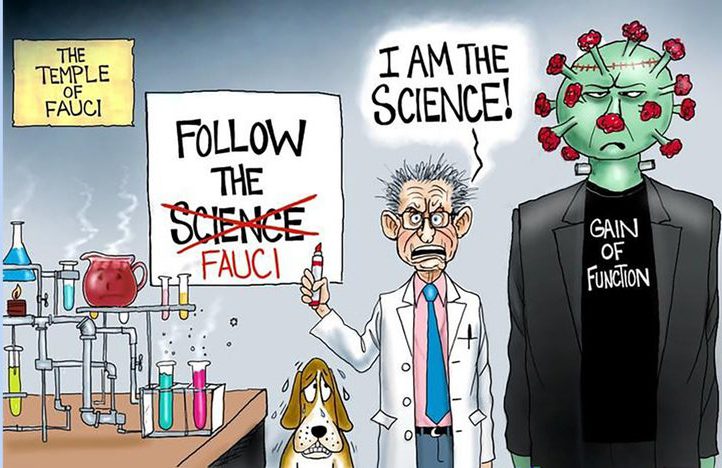
Limitations of Science in Time
One of the most severe restrictions of science is that of time. Tomorrow’s research cannot benefit you today. Furthermore, we can never know what scientific principles that seem reasonable now will be disproven in the future. While some scientific conclusions are more enduring than others, in the end all scientific conclusions are tentative pending the discovery of additional data.
Life, the universe, and their ramifications are infinite. Science can never get around to all of it. Published scientific studies are only progress reports. None are final. When it comes down to the problems of your own personal concerns now, scientific answers may or may not be there when you need them.
If you have cancer now, you cannot wait for science to find a cure. If you are raising your family now, you cannot wait for science to tell you how to deal with your children. Is necessary for you to act now, making dozens of decisions daily, with or without the help of science.
Science is a good method for research, but it’s a lousy method for living. No matter how much science studies and resolves, there will always be more that has not been studied and resolved. Science deals only with the known, which, for all we can tell, will always be relatively infinitesimal when compared with the infinite unknown.
The point is this. Science cannot help you with issues it has not yet studied and you are often in a position where you cannot wait.
There will never be enough time for scientists to get around to everything in our unlimited universe. If you have a problem that needs solving now, you may have to rely on methods outside of science for assistance.
Furthermore, since the choice of topics to which scientists apply their profession is a human choice, full of bias, the particular topics for which you may want scientific answers may or may not ever be chosen for study.
The choices for topics for scientific research are largely motivated by potential for long-term, unlimited profit, not by the urgency of need and the magnitude of the benefits to the public.
Many topics amenable to the scientific method, whose results could be of great benefit to humankind, are deliberately avoided when it appears that such research might lead to conclusions that contradict current paradigms and threaten the security of those currently entrenched in power.
The scientific community is not immune to politics. Therefore, science is limited by time in two ways: first, because there will never be enough time to get around to studying everything; and second because humans, by their prejudices, will choose not to study many issues for fear of the truth that may be revealed thereby.
The American Cancer Society is an example of this. They are afraid to invest their monies in genuine research in natural cures for cancer since a variety of such remedies already exist and have already been proven to be effective anecdotally. They prefer to believe that such cures are impossible. A scientific verification of a real cancer cure could result in the dissolution and demise of their fund-raising society, its mandate having been fulfilled.
Drug companies have the same biases and fears. They invest no research into medicinal plants and essential oils, which cannot be patented. They fear that natural remedies could actually result in wholesale recoveries from cancer among the millions of suffering people from whom they exact their lucrative monetary tributes – a steady income which flows to them for the lifetimes of the patients so long as they are never actually cured.
Statistical Health Care vs. Personalized Care
Because of this, doctors resort to statistics. This is one of the greatest fallacies of the practicing physician – the application of statistical probabilities to individuals.
We choose our personal physicians in the belief that we will receive personalized care. What doctors are actually trained to do is to give statistical care.
What a left-brained doctor will do is to prescribe such that he has a certain level of statistical success among his many patients rather than striving to prescribe in a way that is optimal for each patient according to his or her unique bodily, mental, and spiritual status.
In other words, an allopathic physician will be satisfied if they “lose some and win some,” so long as their losses fall short of the definition of “malpractice.” Winning every case and bringing relief to every patient is not his or her goal. That would be right-brained medicine, a modality in which allopaths are neither trained, encouraged to practice, nor taught to respect.
The fallacy of statistical medicine is this: Just because something is average doesn’t mean it is normal, common, or necessarily desirable. Yet doctors continually fall into the logical trap of assuming that a given range of an average is normal, etc. Because of their ignorance, their fear, and their denial of the proper use of intuition, they don’t know what else to do except to deal with all patients as statistics. Thus, each patient becomes a set of data to fit into the matrix of standard treatments and diagnoses taught in medical school and enforced by medical peer pressure.
For example, the average human gestation is 272 days (nine months). But that does not mean that 272 days is applicable to you and your pregnancy. Do all the apples on a tree ripen on the same day or in the same span of time from blossom to a mature fruit? Two-hundred seventy-two days may be premature for your baby, yet American doctors induce and do cesarean sections based upon this fallacy every day. As a result, six out of seven cesareans are physiologically unnecessary. Such practices are a leading cause of prematurity in the U.S. today and a leading cause of newborn and maternal mortality.
During my training in medical school, the professors repeatedly emphasized, “Don’t treat the patient; treat the chart.” In other words, treat the data, not the person. Health care practice will never become a true healing art until the role of right brain, non-objective science (intuition) is acknowledged, taught, nurtured, and encouraged. Only then can medical practice be customized to the client.
Proof, Disproof, and Verification
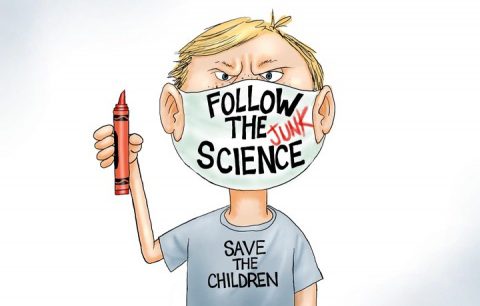
In the end, scientists can only do two things: verify or disprove. Disproof of a hypothesis is easy. All you need is one exception.
To verify means that you have observed that the physical or biological law under question has been followed. You may verify again and again, but never prove, because to prove means that you have investigated every possible situation, past, present, and future throughout the entire universe – within and without. This is, of course, impossible. It is impossible now and it always will be impossible within the scope of the scientific method as defined today.
Hence, when scientists say they have “proven” something, they really only mean that they have verified it enough times to be confident that if they do it again, it will work, according to the stated limits; and if anyone else tries it, they, too, will make the same observations.
To state that you believe in a tenet of physical or biological science is actually an act of faith based on your experience or on the experience of other scientists in whom you hold confidence.
How many people have personally verified Mendel’s Laws of dominant and recessive genes in genetics? Even if you have verified it for some traits in some species, how can you be absolutely certain, without taking a leap of faith, that the laws will apply in any future specific instance?
To more clearly delineate the difference between “proof” and “verification” consider the Pythagorean Theorem again. One may verify the theorem quite easily by carefully drawing a right triangle, measuring the lengths of the sides, squaring the lengths, adding the results, and comparing the sum to the square of the measured length of the hypotenuse. Even if you drew a million different right triangles and verified the theorem for all of them, no mathematician would consider this a proof. To prove it is necessary that you, somehow, deal with all right triangles, past, present, and future, all at once. Only this would constitute absolute proof.
Fortunately for mathematicians, this is possible. Since the idea of a triangle is an abstract creation of the conscience (what we draw on paper is merely a representation of that abstract idea), all right triangles can be dealt with simultaneously in the abstract so that within the realm of mathematics, absolute proof can be accomplished.
Unfortunately for scientists, such accomplishments are not possible. Therefore, it is a fallacy to assume that because something is “scientific” it is true, in an absolute sense, or that it is even better than something arrived at non-scientifically.
“Scientific” only means that a certain approach has been taken (i.e. the scientific method). One can apply the method perfectly well and obtain truly “scientific” results whose application may not only rest upon an ultimately false foundation, but could, if put into practice, eventually prove to be harmful.
Conversely, a “non-scientific” approach is often the best. There is a place for both science and non-science. Both is necessary to be used, but only in the right circumstances and with discretion. Hence, only mathematicians and other types of logicians can prove things. Scientists is necessary to content themselves with verification or disproof.
While mathematicians live in a comfortable realm of certainty within the universe of their own consciences, scientists, courageously exploring the universe they experience, live in perpetual uncertainty. In order to make the most effective use of science, we need to recognize these intrinsic limitations.
What is the Scientific Method?
A scientist’s task is to invent a story to explain his or her observations and then to decide just how likely their story may be. Organizing this process into steps, we arrive at the “scientific method” consisting of three parts:
- Observation,
- Hypothesis,
- Experimentation.
These three steps may occur in any order during the scientific process, but usually a scientist first observes something that suggests a certain explanation. They then set up experiments and make further objective observations to test their hypothesis. In the beginning they may modify their hypothesis from time to time, refining it to more closely fit the data. Eventually, they may reach the point where the hypothesis fits most, if not all, observations and they feel it can be refined no more. If they have verified it repeatedly and have a great deal of confidence in the hypothesis, they may then call it a “theory.”
If many other scientists also verify the theory, it may become elevated to the status of a “law.” A “law of nature” or a “law of chemistry or physics” is merely an accurate description of how certain parameters are related which have been verified over a period of time by many scientists. This is the scientific method.
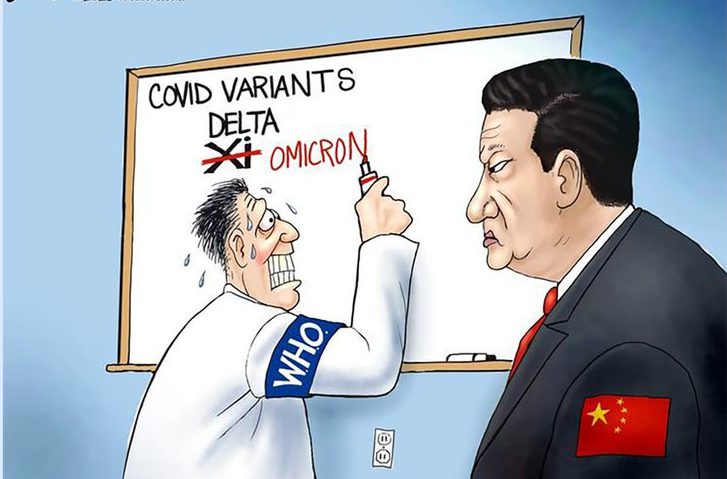
When scientists have several theories, each of which partially describe a situation, but none completely, they may choose the theory with the fewest inconsistencies as being the “best theory.” It is not unscientific to apply a theory that has not been shown to be completely accurate if it is the theory that seems to account for more observations than any other.
As a scientist you never deal with absolutes. You need to continually apply theories and ideas that, although not necessarily shown to be completely correct, are still workable and seem to yield acceptable results. Here, again, the idea of absolutes is one that only mathematicians can enjoy.
This lack of exactness in science is readily apparent in the life sciences where processes are so complex that precisely reproducible results are never obtained. In the limit, this lack of exactness is present even in the sciences of physics or chemistry which deal with the simpler inanimate world.
The truth is that there is no such thing as an “exact” science. No science is exact. In the real world, we need to always accept approximations and make choices between theories or paradigms, none of which are perfect or complete.
If it were considered unscientific to use a theory that is not perfect, there would be no science. Choosing the better of two imperfects is necessary to be considered one of the most important aspects of the scientific method.
The last consideration leads us to the relative roles of objectivity and subjectivity in science because, as it turns out, the “choice” of one theory over another is primarily subjective and depends to a large extent upon the personal bias of the scientist.
Objectivity and Subjectivity in Science
The rules of the scientific method require that observations be objective. This means that, theoretically, regardless of who makes the observations, the account should be the same – within limits, of course.
For example, if ten laboratories were to analyze samples from the same batch of frankincense or balsam fir, they should all get about the same results, although with some minor variations. Such data would be considered to be “scientific” and “objective.”
It is from objectivity that science gains its power. It is from objectivity that science obtains its universal appeal that cuts across the barriers of language, politics, and nationality.
But paradoxically, while objectivity is its greatest strength, it is also its greatest weakness, because it is also objectivity that makes science incapable of dealing with most of the important aspects of human life – the aspects that bring us warmth, affection, pleasure, and happiness. Science cannot cope with the subjective. Where subjective experience has objective consequences, the consequences can be studied scientifically, but not the experiences themselves.
Scientific objectivity assumes that the observer can be, and is, separate and independent of the observation. While this is achievable to an acceptable extent in many areas of research, in the ultimate sense, it is impossible and unachievable. This is because at some level, the consciousness of each and every human being is connected to all aspects, both animate and inanimate.
The Nature of Subjectivity
“Subjective” merely means that the experience has meaning only to the person involved and is beyond scientific measurement. Take eating, for example. It is almost purely a subjective experience. The way foods taste to you is your own unique experience. No one will ever quite have your experience. No one can know what a specific food tastes like to you.
I know what vanilla ice cream tastes like to me, but how can I know what it tastes like to you? As a direct experience, I can only know the sensations of my own taste buds, but not yours or anyone else’s.
Tasting food can be more or less objective to the extent that given a thousand people eating lemons, they would probably universally agree that they tasted sour
However, there would be many opinions as to “how sour,” what constitutes the sensation of “sour,” and whether or not “sour” is a taste that is “good” or “not good.”
Subjective experiences are essentially yours and, as such, cannot really be shared with others. If you smell a rose, that experience is yours. You can tell it to me in words, but until I smell it for myself, I cannot know what the smell of a rose is all about. Even after we have both smelled it, we can never know just how much each of our sensations was like the other’s. If it turns out that you don’t like the smell of the rose while I do, your experience does not make my experience any less pleasant or less real. Contradictory subjective experiences on the part of two people cannot invalidate the experience of either.
You can apply these concepts to your relationship with your physician regarding your own body or that of your children. If you conclude or feel one way and your doctor concludes or feels another, that does not make either of you wrong, necessarily.
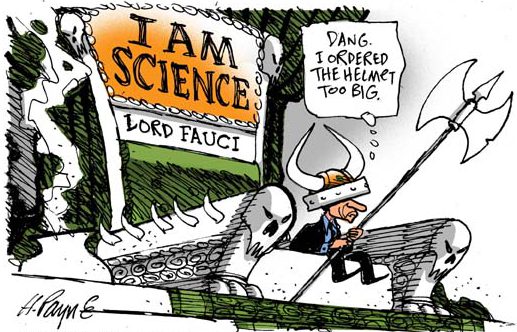
However, as an individual, since it is your life and body, or that of your child, you have rights that the physician does not have unless you give them up. Hence, when there is a conflict of opinion between you and your health care provider, you have the right to believe in yourself first. There is a price to be paid for this freedom. If you do not follow the doctor’s words or the hospital’s policies, they may threaten you with legal action to intimidate you into compliance with their will. Ultimately, is necessary for you to assume the responsibility for the consequences, legal or otherwise.
You have a right to choose, for yourself and your family, what may seem to the medical profession, a wrong choice. By following your own thoughtful inclinations, when they differ from your doctor’s, you are assuming more personal responsibility than when you just go along with whatever the doctor or hospital says.
In reality, the responsibility for your health, or that of your children, is totally yours regardless of who makes the decisions in your health care. If you or your child are damaged by some medical procedure, neither the doctor nor the hospital will raise your child or care for you with your iatrogenic (doctor-caused) or nosocomial (hospital-caused) disability.
So What is the Answer?
It is clear from all of this that science cannot have all the answers and never will. Science alone cannot offer us adequate guidance through the various health crises, both big and small, that we experience from day to day throughout our lives.
When we are in the midst of a crisis that is beyond the current models of science to address, we cannot wait for science to find answers for us when we need them now. What do we do, then, when is necessary that we take medical decisions regarding ourselves and our loved ones and science cannot help us?
First, let us develop the habit of always seeking direct advice from God, the master physician, master scientist, and provider of all that is healthy and good.
But we need not wait until a crises to seek his guidance. Is necessary that we develop a relationship with Him by daily prayer and attunement, practicing his presence in all that we do. A great saint once said, “If you don’t make God your summertime friend, He won’t come in the winter of your life.”
It isn’t exactly that He won’t come, but what you need to do is to develop your lines of communication with God during times of calmness and learn to hear His still quiet voice during the peacetime of daily practice. Otherwise, you may not be able to hear Him during the battle din of a real emergency.
Second, let us look to nature as our teacher. “Nature is permeated with God’s intelligence, humbly and patiently waiting for us to seek His advice and wisdom as He speaks to us through what He has made.” (Job 12:8; Romans 1:20)
Let us assume that nature knows best. Learn her ways, and harmonize with her in a conscious, intelligent way always praying to God for His perfect guidance.
Thirdly, let us also follow science appropriately when good data are available and let us apply the scientific method wherever possible to test the relative merits of alternatives in health care.
But let us realize that science cannot lead us to the right answers unless we lead science to the right topics for research. When presented with a firm fact that contradicts current theory, let us be willing to accept the fact and give up the theory.
Fourthly, let us also understand and recognize where the efficacy of science ceases and rely on other means to base our judgments. Don’t be intimidated when what appears to be science contradicts your own true feelings in a crisis situation. Learn to trust yourself as the best judge in personal or family situations.
Let us openly restore and practice our faith in our God-guided feelings and our common sense. Let us learn how to refine and develop the gift of divine intuition by practice, experience, reinforcement, and association with others that use it.
Let us also recognize and respect the natural nurturing and healing gifts that God manifests through women and the nurturing sides of men. Let us honor mothers appointed by God as natural healers for their families.
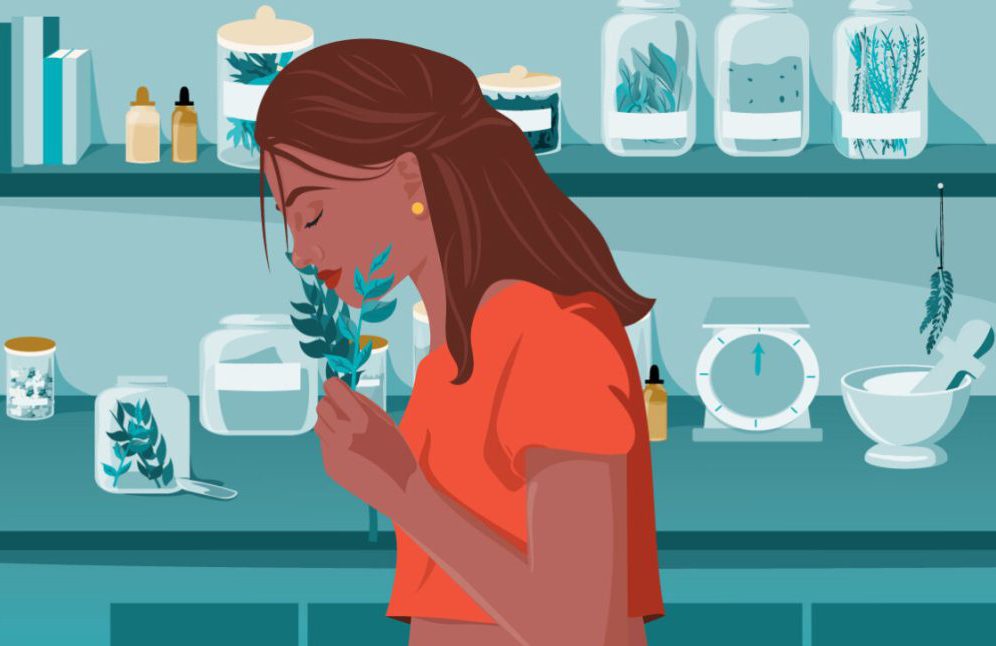
There is an intelligence and an order in our universe that already has all of the answers and to which we can directly appeal for solutions to all of life’s problems – now and whenever we are in need. There is a consciousness in creation that transcends science and the senses – a source of wisdom and knowledge to which we can apply for help at any time. Its name is God. Its language is prayer. Its condition for receiving is humility. Its channel is love.
It can never be through science, as we know it today, that the optimization of health care practice will be realized in the world. Science is a powerful ally, a gift from God that can be used for good or abused for ill. God leaves that choice to us, his children.
The limits of science today are a reflection of the limits of consciousness held by today’s scientists and the practitioners of professions that are supposed to be based on science.
As individuals of the scientific community develop spiritually, expand their awareness, and become able and willing to see and recognize the reality of aspects beyond the physical that underlie the manifested universe, then the limitations of the scientific method will become less constrained.
The point is this. Until scientists learn to pray and commune with God, in humility, they will lack the necessary awareness to perceive a more complete vision of the true nature of reality.
Until scientists develop their spiritual gifts along with their intellectual gifts, the methods of science will remain limited and incapable of discovering the true nature of this world in which we dwell.
The day is necessary to come when students of mathematics and the sciences will be educated in institutions that offer a balance between cerebral education and spiritual discipline.
Then, and only then, will a true science come into being, the fruit of which is the truth of God.
Excerpted from the book: “The Chemistry of Essential Oils Made Simple: God’s Love Manifest in Molecules” – pages 618 – 654.
About the Author:
Dr. David Stewart studied theology, philosophy, and English at Central Methodist College in Fayette, Missouri (1955-58) and studied chemistry, biology and social sciences at Central Missouri State University in Warrensburg (1962-63). He completed a BS degree in Mathematics and Physics at Missouri School of Mines and Metallurgy in 1965 and was salutatorian of his graduating class. His MS and PhD degrees are in geophysics (theoretical seismology) and were earned from the University of Missouri at Rolla in 1969 and 1971 respectively. He spent a semester in medical school at the University of North Carolina (1973) and has been a Certified Childbirth Educator (CCE) with the American Academy of Husband-Coached Childbirth (AAHCC) since 1975.
Dr. Stewart is also a Registered Aromatherapist (RA) with the nationally recognized Aromatherapy Registration Council (ARC), which is endorsed by the National Association of Holistic Aromatherapists (NAHA), of which he is a member.
He has held positions as a hydraulic engineer and hydrologist with the U.S. Geological Survey in Southern California (1965-67). He was a professor on the faculty of the University of North Carolina, Chapel Hill, (1971-1978) and also held a professorship at Southeast Missouri State University (1988-1993).
He was also a part-time United Methodist Pastor (1993-94, 1997-99) in rural Missouri. He has been the Executive Director of the InterNational Association of Parents and Professionals for Safe Alternatives in Childbirth (NAPSAC International) since its founding in 1975.
For most of his professional career, Dr. Stewart has been self-employed as an author and lecturer, mainly in the area of alternative health care. He has also served on advisory committees to the American Public Health Association (APHA) and the American College of Nurse-Midwives (ACNM).
He has testified as an expert on health matters before state legislative committees, U.S. congressional committees, medical licensing boards and courts of law throughout the U.S. as well as in Canada.
He has authored or coauthored over 200 published works including more than a dozen books (including “Healing Oils of the Bible”). Two of his books won the “Books of the Year” Award from the American Journal of Nursing. One of his flyers on breastfeeding (published by La Leche League International, LLLI) sold over two million copies in ten languages.
yogaesoteric
February 4, 2022
Also available in:
 Română
Română
